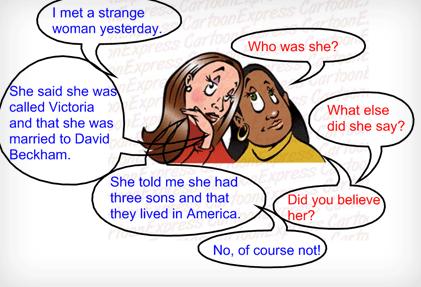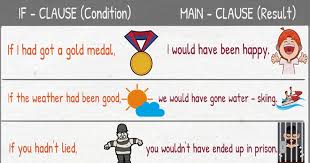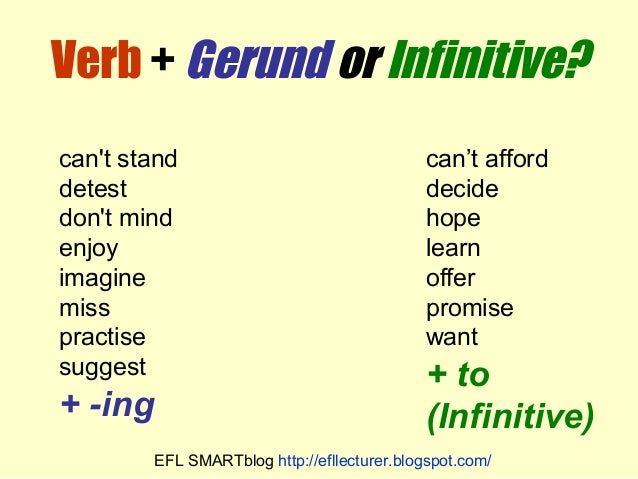Find below two presentations Sam has prepared to help you to use and learn the new vocabulary you can find in Unit 5. I'm sure you will find them very useful.
Thanks again, Sam!
The aim of this blog is to help students learn, practise and review English in order to improve their language skills.
Wednesday, 12 December 2018
Negative Adverbial Inversion Practice
Here you have the presentation our assistant Sam has prepared for you about using negative adverbials at the beginning of the sentence to emphasise something. When doing so, inversion is compulsory.
Thank you, Sam!
Thank you, Sam!
Saturday, 20 October 2018
Thursday, 27 September 2018
NEEDN'T HAVE, DIDN'T NEED TO
Have a look at this explanation by the BBC and then do the exercises that follow.
"Needn't have and didn't need to
Both these forms are used to talk about past events, but there is sometimes a difference in use. When we say that someone needn't havedone something, it means that they did it, but it was not necessary.Didn't need to is also sometimes used in this way:
There is also a difference in use when these verbs are used to describe present situations. We can use both needn't and don't need to to give permission to someone not to do something in the immediate future. We can also use need as a noun here:
Note from the above examples that need can either act as a modal verb or as an ordinary verb. When it acts as a modal auxiliary verb it is nearly always used in negative sentences, as the above examples illustrate, although it is sometimes also used in questions as a modal verb:
1. Exercise.
2. Exercise.
3. Exercise.
"Needn't have and didn't need to
You needn't have washed the dishes. I would've put them in the dishwasher.
You didn't need to wash the dishes. I would've put them in the dishwasher.
I didn't need to prepare all that food. They phoned to say they wouldn't be coming.
I needn't have prepared all that food. They phoned to say they wouldn't be coming.
But we also use didn't need to to say that something was not necessary under circumstances where it was not done:
The sun came out so we didn't need to take any rainwear on the trip.
We had plenty of petrol in the tank so I didn't need to fill up.
We didn't need to wait for long for them. They arrived just after us.
Needn't and don't need to
You don't need to water the garden this evening. It's going to rain tonight.
You needn't water the garden this evening. It's going to rain tonight.
There's no need to water the garden this evening. It's going to rain tonight.
You don't need to shout. It's a good line. I can hear you perfectly.
You needn't shout. It's a good line. I can hear you perfectly.
There's no need to shout. It's a good line. I can hear you perfectly.
However, when we are talking about general necessity, we normally use don't need to:
You don't need to pay for medical care in National Health Service hospitals.
You don't need to be rich to get into this golf club. You just need a handicap.
Need
Need you leave straightaway? Can't you stay longer?
Need I say more? I would like you to stay.
When it is used as an ordinary verb with to before the following infinitive and with an s in the third person singular, it appears in both affirmative and negative sentences and in questions:
She's almost dehydrated. She needs a drink. She needs to drink something before she has anything to eat. She doesn't need tostay in bed, but she should have a good rest before she sets off again. ~ Do I need to stay with her? ~ Yes, I think you should"
2. Exercise.
3. Exercise.
Sunday, 16 September 2018
Wednesday, 12 September 2018
New school year - My Symbaloo
Hi students,
Another year, another post. Let me share with you my own Symbaloo I created for you last year.
I hope you learn a lot of English this new school year.
Enjoy the lessons! I wish you all the best 😊
Remember you can access all these pages by simply clicking on the tile you want to. You have useful webpages that will help you improve your English language skills: games, magazines, books, news, dictionaries, IT tools, etc.
Another year, another post. Let me share with you my own Symbaloo I created for you last year.
I hope you learn a lot of English this new school year.
Enjoy the lessons! I wish you all the best 😊
Remember you can access all these pages by simply clicking on the tile you want to. You have useful webpages that will help you improve your English language skills: games, magazines, books, news, dictionaries, IT tools, etc.
Friday, 25 May 2018
Romanticism
Find below the presentation Kirsten prepared for you about Romanticism.
I hope you enjoy some of the poems by John Keats, William Wordsworth, Lord Byron and William Blake that you are studying in class.
I hope you enjoy some of the poems by John Keats, William Wordsworth, Lord Byron and William Blake that you are studying in class.
Tuesday, 22 May 2018
A for and against essay
Here you have an essay written by one of your classmates (3ESO). The student presents the advantages and disadvantages of always being in contact because of mobile phones.
Besides content, have a look at the wide range of vocabulary, grammar structures and connectors the learner uses.
You can also write something similar if you make an effort!
Find below another essay written by another 3ESO student. The topic is about sharing your problems with friends.
Besides content, have a look at the wide range of vocabulary, grammar structures and connectors the learner uses.
You can also write something similar if you make an effort!
Find below another essay written by another 3ESO student. The topic is about sharing your problems with friends.
Essay Sharing Problems With Friends Ed by dgmmm on Scribd
Thursday, 17 May 2018
Gerund (-ing) and Infinitive
Saturday, 12 May 2018
Vocabulary Revision Unit 8 (3C Programa)
 Would you like to play Kahoot again to review vocabulary and those phrasal verbs you like so much?
Then, click here and join Kahoot to review unit 8 (Mosaic 3) with the game Kirsten prepared for you.
Would you like to play Kahoot again to review vocabulary and those phrasal verbs you like so much?
Then, click here and join Kahoot to review unit 8 (Mosaic 3) with the game Kirsten prepared for you.
Adjectives and Idioms. Unit 2 Solutions Upper Intermediate
Here you have the presentation reagarding feelings and idioms that Kirsten prepared for you. I'm sure it will be helpful for you to study, practise and increase your vocabulary.
Friday, 11 May 2018
Lord Byron: 'She Walks on Beauty'
She Walks on Beauty is a very well known poem by Lord Byron (George Gordon Byron). I think that the more you read it the more you like it.
She Walks on Beauty
She walks
in beauty, like the night
Of
cloudless climes and starry skies;
And all
that’s best of dark and bright
Meet in her
aspect and her eyes;
Thus
mellowed to that tender light
Which
heaven to gaudy day denies.
One shade
the more, one ray the less,
Had half
impaired the nameless grace
Which waves
in every raven tress,
Or softly
lightens o’er her face;
Where
thoughts serenely sweet express,
How pure,
how dear their dwelling-place.
And on that
cheek, and o’er that brow,
So soft, so
calm, yet eloquent,
The smiles
that win, the tints that glow,
But tell of
days in goodness spent,
A mind at
peace with all below,
A heart
whose love is innocent!
You can listen to a song based on the poem here.
You can listen to the poem here.
Thursday, 10 May 2018
Reported Speech 3 Programa

This post is going to deal with reporting present tense in both statements and questions. You also have commands.
After having studied and practised this in class, you can do the following exercises.
STATEMENTS
One.
Two.
Three.
Four. Present Continuous.
QUESTIONS
One.
Two. Yes-No questions
Three. Wh Questions
COMMANDS
One.
Two.
Tuesday, 8 May 2018
Comparison - New structures: double and repeated comparatives

Comparison and contrast are expressed by the use of the…, the…with comparative adjectives in parallel clauses. This structure is used to show proportionate increase or decrease.
Structure:
the + comparative adjective + clause, + the + comparative adjective + clause
the + comparative adjective + clause, + the + comparative adjective + clause
- The more adventurous it is, the more I like it. (NOT The more it is adventurous, the more I like it.)
- The less I see him, the more I like him.
- The more he reads, the less he understands.
- The older we grow, the wiser we become.
- The higher you climb, the colder it gets.
- The richer one grows, the greater one’s worries.
- The less you spend, the more you save.
- The sooner they go, the better it is.
A short form of this structure is used in expressions such as the following:
- ‘How do you like your coffee?’ ‘The stronger the better.’
- ‘When should I start?’ ‘The earlier the better.’
Wednesday, 2 May 2018
Conditional Sentences
Conditionals are sentences with two clauses – an ‘if clause and a main clause – that are closely related. Conditional sentences are often divided into different types.
Zero conditional
We use the zero conditional to talk about things that are always true.
- If you heat water, it boils.
- When the sun goes down, it gets dark.
- It lights up if you push that button.
The present simple is used in both clauses.
First conditional
We use the first conditional when we talk about real and possible situations.
- I’ll go shopping on the way home if I have time.
- If it’s a nice day tomorrow, we’ll go to the beach.
- If Arsenal win, they’ll be top of the league.
In first conditional sentences, the structure is usually if + present simple and will + infinitive. It’s not important which clause comes first.
Second conditional
The second conditional is used to talk about ‘unreal’ or impossible things.
- If I won a lot of money, I’d buy a big house in the country.
- Where would you live if you could live anywhere in the world?
- If you didn’t smoke so much, you’d feel a lot better.
The structure is usually if + past simple and would + infinitive. It’s not important which clause comes first.
Look at the difference between the first and second conditionals.
Look at the difference between the first and second conditionals.
- In January: If it snows tomorrow, I’ll go skiing. It might snow tomorrow.
- In August: If it snowed tomorrow, I’d go skiing. It almost certainly won’t snow tomorrow.
(From: https://learnenglish.britishcouncil.org/en/quick-grammar/conditionals-1)

(From: https://learnenglish.britishcouncil.org/en/quick-grammar/conditionals-2)
Third conditionals
Third conditional sentences describe the past. They describe something that didn’t happen.
- If I’d studied harder at school I would have gone to university.
He didn’t study very hard and he didn’t go to university.
- We wouldn’t have got lost if you hadn’t given me the wrong directions.
She wasn't given the correct directions and she didn't find her way.
- She might have finished the exam if she’d had more time.
She didn't finish the exam and she didn't have more time.
In third conditional sentences, the structure is usually if + past perfect and would + perfect infinitive (e.g. have done). It’s not important which clause comes first.
Notice that other modal verbs can be used instead of ‘would’ (e.g. ‘could’, ‘might’ ‘may’)
EXERCISES for you to practise:
First Conditional:
Second Conditional:
Adjectives describing personality

Order of adjectives 1.
Order of adjectives 2 with a multiple choice exercise.
Matching exercise 1.
Matching exercise 2.
Test. (Scroll down to see the test 'Description of personality'). There are three mistakes. Can you find them?
Wednesday, 25 April 2018
Book Day
Last Monday, our school celebrated the Book Day in different ways.
One of them consisted in reading -with a QR reader app on our mobile devices- different QR Codes that led us to listen to some voice recordings about our students' favourite books.
An enjoyable activity that combines ITs (using their mobile devices to decode and listen), reading (students commented on the books they had already read), speaking (students had to record themselves speaking English, improving their oral skills) and listening skills (all students had the chance to listen to their classmates' recordings).
Monday, 16 April 2018
Vocabulary Revision Unit 9 High Achievers B1+
In order to review some vocabulary from Unit 9 High Achievers B1, click on this link to do a crossword.
Monday, 9 April 2018
Jane Austen
Find below the interesting presentation about Jane Austen that Kirsten prepared for us .
Monday, 2 April 2018
Wednesday, 21 March 2018
Subscribe to:
Comments (Atom)


























































